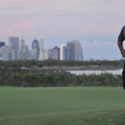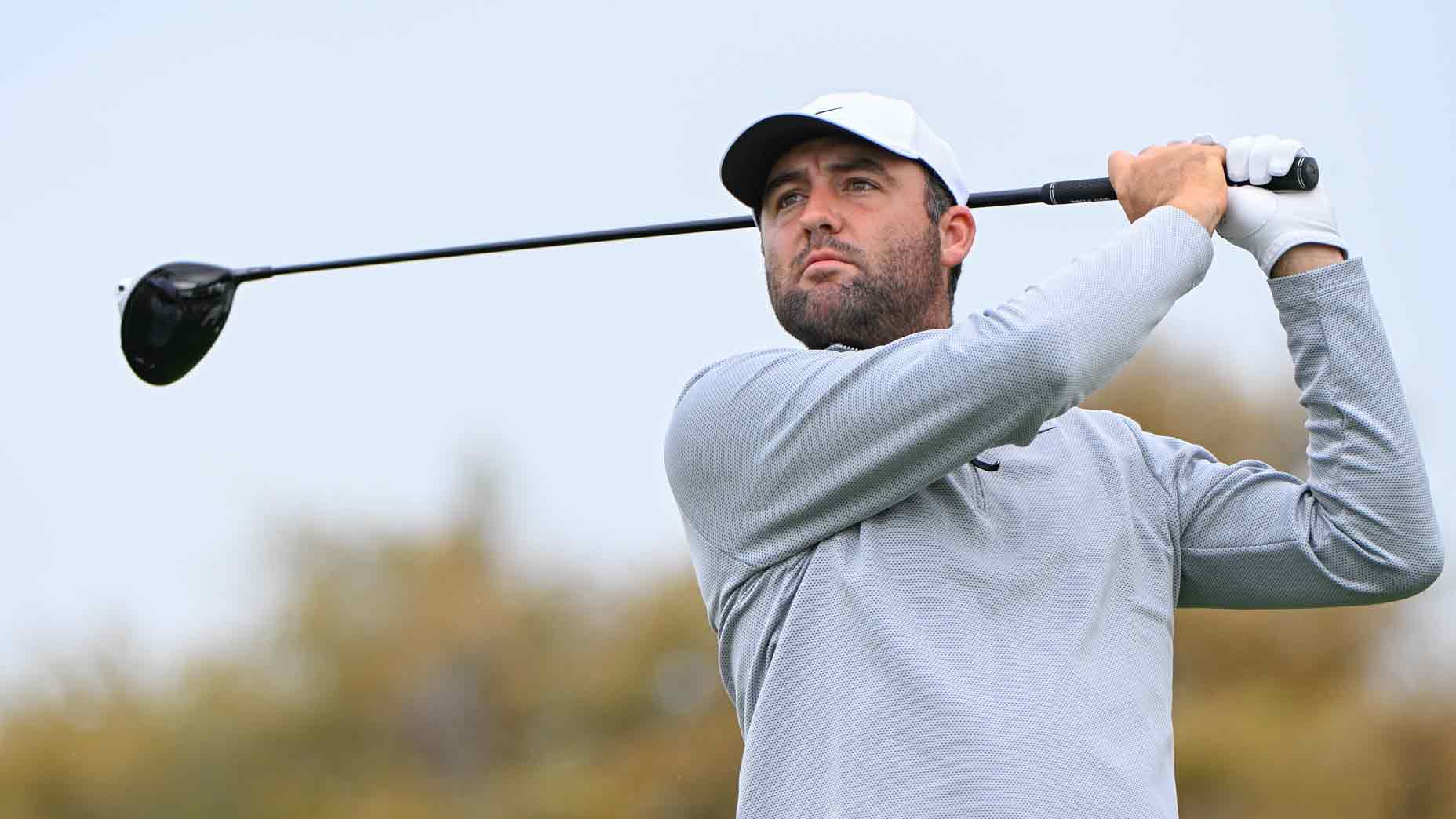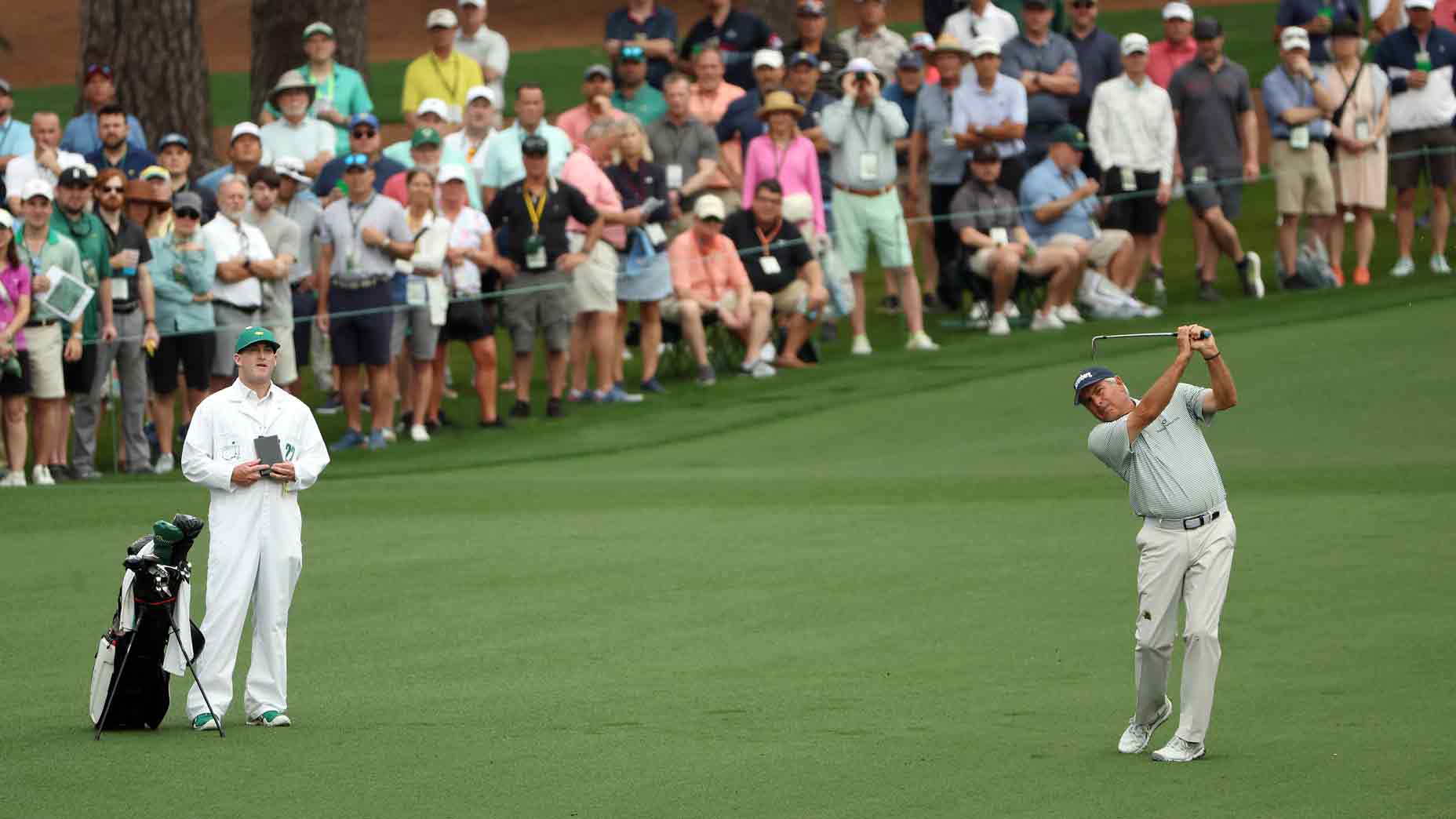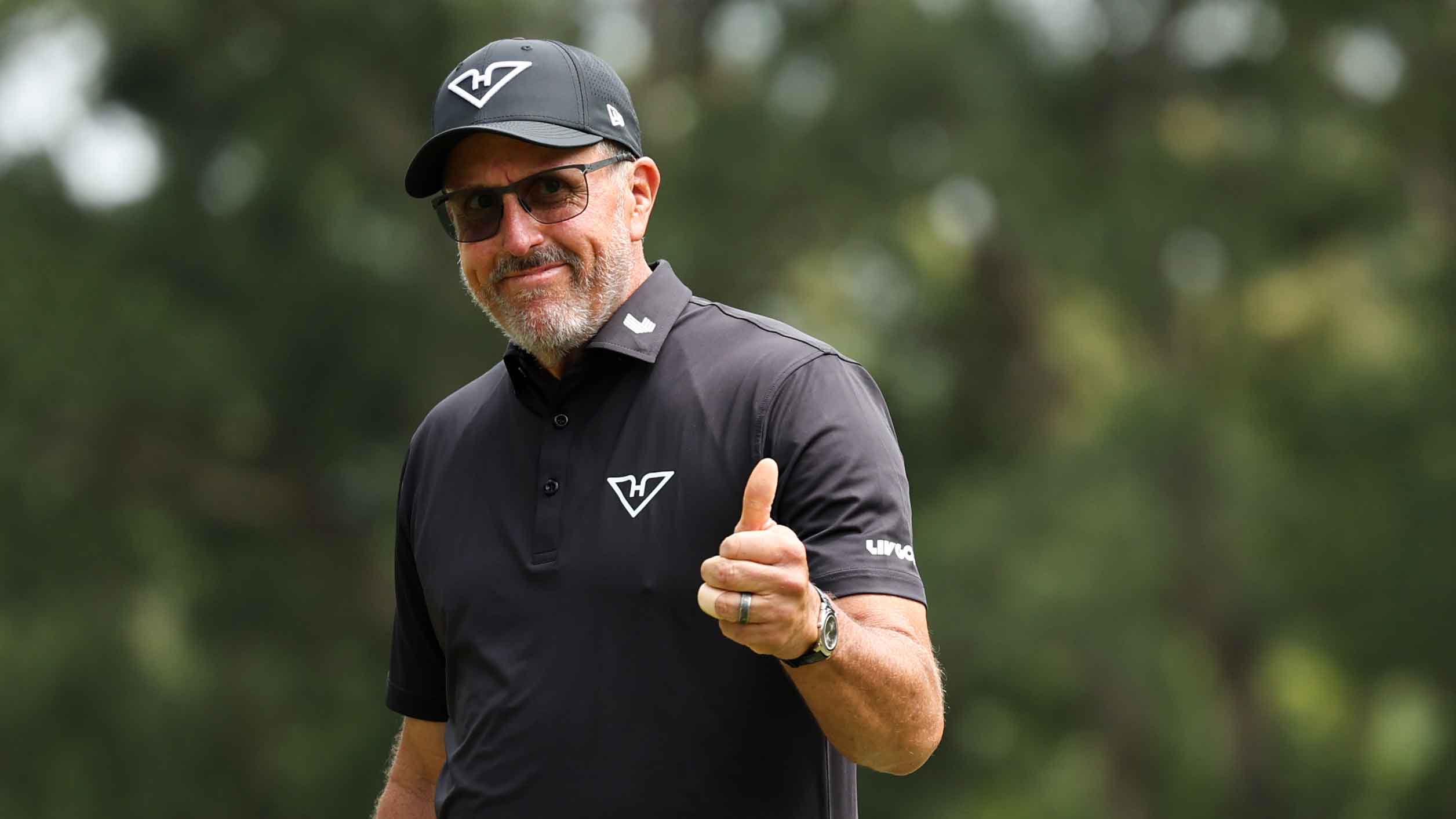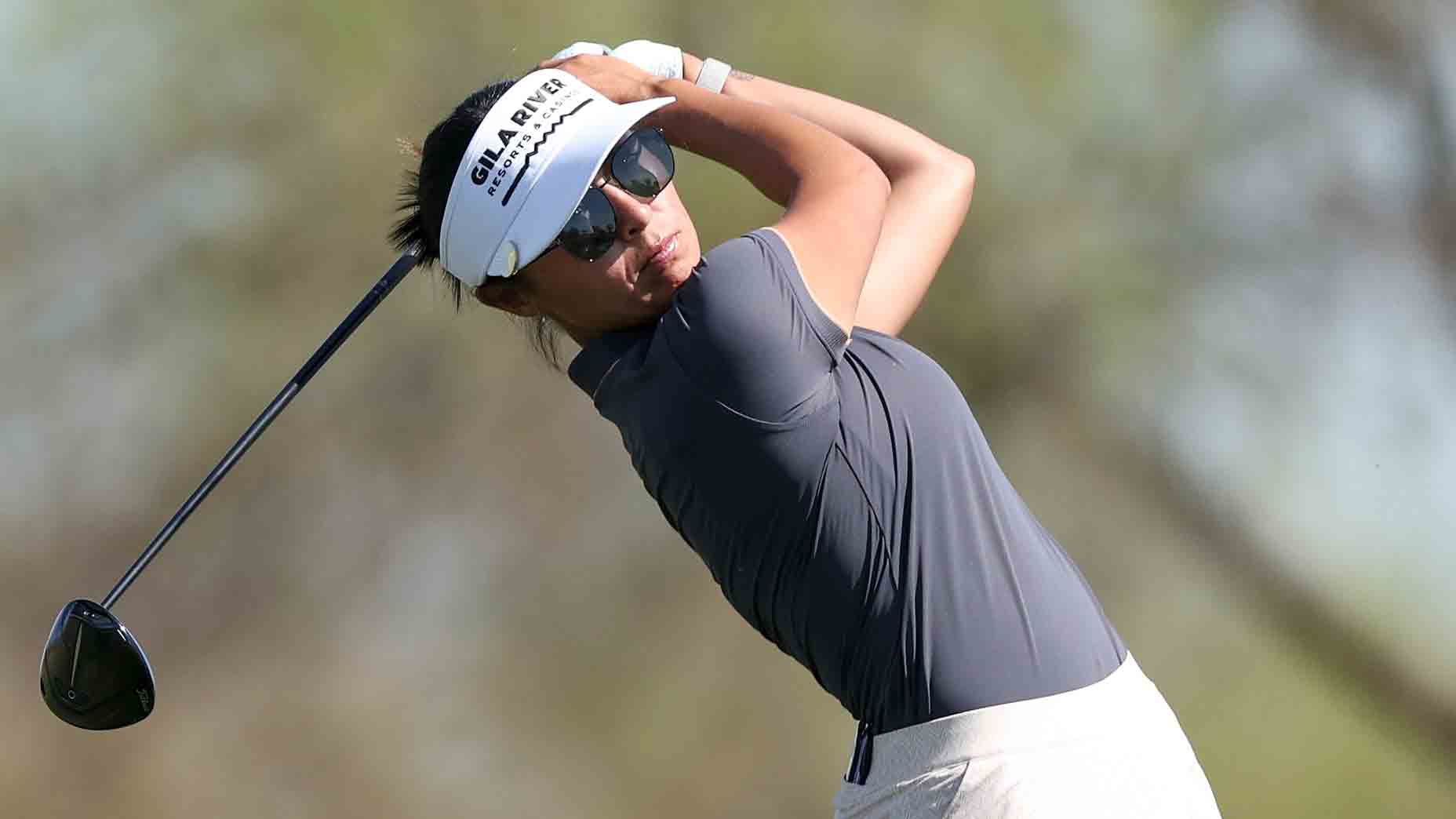 A must-hear comeback story, and LIV Golf club anger | Weekend 9
A must-hear comeback story, and LIV Golf club anger | Weekend 9
At 43, Tiger Woods rediscovered his game, his love for it, and true happiness
We all figure it out, eventually, that what really matters most is not winning or losing but being in the game. You might not know that when you’re ten or twenty or thirty. But sooner or later you do, and if you get it at 43 (Tiger Woods’s age) that’s not too late. Because it’s never too late.
Woods is smack-dab in the game, contending, captaining, mentoring, not long after he had just about written himself out of it. And he’s never seemed happier, don’t you think?
Yes, this magazine and website, so devoted to helping you cure your slice, is now expanding its editorial mission. We’re taking it on: golf happiness, and life happiness. Or maybe we should say, as Jefferson did, the pursuit of happiness. He was all but predicting a Big Band composition, recorded by Larry Clinton and his Orchestra, called “Sometimes I’m Happy,” from the 1957 album Music for Tired Golfers. And so, after surveying top teachers, reading various books and watching It’s a Wonderful Life, we have devised a Big Three get-happy cheat sheet: 1) Be in the game, 2) Do for others, and 3) Live with gratitude.
And with that in mind, we will now attempt something both ridiculous and meaningful: To assess the happiness of a man who is a significant figure in the long history of prodigy studies. We’re not saying Tiger Woods is a Mozart or a Picasso or Marie Curie, but he surely has a place on the APL (all-time prodigy list). He didn’t ask to live his life on TV, but that is what he’s done, and millions of people have seen it unfold, from The Mike Douglas Show (not yet three) to where he is today. His path to happiness had to be challenging. But wouldn’t it be a waste if we didn’t try to learn something from it?
Okay.
Let’s say you were on hand for all of Tiger’s major wins except one. Let’s say you first saw him in person when he won his second U.S. Amateur in 1995. Let’s say you’ve seen him at this winning-team press conference or that one, wearing this team uniform or that one. (You’re me, for this paragraph, if you can stand it.) And in that period, almost 25 years, many of them lousy with wins, the happiest you’ve ever seen Tiger Woods was at this year’s Masters — at the end of the second round.
ADVERTISEMENT
Yes, we’re talking about where he was two days before Sunday’s riveting high-wire act, the one that led to Butler Ceremony V. But let’s stay with that Friday, dusk coming on, a perfect Augusta spring night on deck. Tiger’s whole body was on high alert, his eyes and hands and brain most especially. He could almost sense the grass growing underneath his feet. Earlier in the week, Woods had had an intense and instructive practice-tee conversation with the great José María Olazábal about playing pitch shots off Augusta’s famously tight turf. But now the fairway grass was bordering on fluffy, and the greens were slow, and Tiger was making adjustments. When you’re firing on all cylinders—when you’re really in the game— you’re making adjustments on instinct alone. All the good shortstops and shooting guards and golfers will tell you that.
Woods’s first round was 70, two under par, but it had passing moments of looseness. On that Friday evening, he climbed the hill en route to the home green and a 68 that was close to airtight. We all know how good that feels. Not the 68 part, but how good it feels to be in control of your golf ball. How good it feels to be in a good place, period. He was getting the champion’s ovation. This was the guy who almost laughed when he saw a kid at the Players, one month earlier, wearing a T-shirt with his mugshot on it. It takes balls to meet your life head on.
Snapshot, cont’d: Tiger’s kids — athletic and alert — were in Florida, playing their sports and doing their school work, under the eye of their mother, Elin, Tiger’s former wife. Sam and Charlie couldn’t have a more committed mom and Tiger knew it, and he knew that she would say the same of him, as their father. Perfect? No, of course not. But committed. Doing good work on the road is always easier when you know there’s peace in the house. (Shalom bayit, as Mark Steinberg, Tiger’s agent, and Glenn Greenspan, Tiger’s spokesman, might have it.) The caddie beside Tiger on that Friday night, Mr. Joe LaCava, had contributed immeasurably to Tiger’s game and well-being, in ways that no electronic gizmo could ever measure. Joe did everything by doing nothing. That is, he didn’t quit. Hank Haney quit (2010). Steve Williams quit (2011). But Joe LaCava was not going anywhere. He spent several restless years reorganizing the garage at his home in Connecticut over the nearly half-decade when Woods’s schedule was erratic at best. But Joe did not budge for the simple reason that he loved Tiger, loved the feeling of being on Team Tiger and believed that Tiger would someday reclaim his status in the game — or die trying.
In the wings, on that Friday night, were two other people, intentionally under the radar, who have contributed significantly to Tiger’s state of mind, and to the state of his play. One was Tiger’s wingman, Rob McNamara, on the payroll but more like, to use a phrase of their camp, Tiger’s brother by choice. Unassuming in appearance, relaxed in a realm that leaves many uptight, McNamara is a 70s shooter who has played hundreds of rounds with Woods. He offers observations about ball position, tips the guys in the locker room on Tiger’s behalf, and is a sounding board for questions about what tournaments to play and whether to put the 5-wood in the bag or in the trunk. The other person was Erica Herman, Tiger’s girlfriend for several years now and, yes, unassuming in appearance and relaxed in a realm that leaves many uptight. Herman, a manager at Woods’s restaurant, has a good rapport with Sam and Charlie, talks easily to reporters and fans, doesn’t seek attention, and knows that making any business work (the restaurant business, the golf business) requires obsessive attention to detail. When Tiger went to the Rose Garden in May, and the leader of the free world put a ribbon around his neck, Sam and Charlie were there, Steinberg and Greenspan were there, Erica and Rob were there. Tiger’s mother, Tida, was there, too. He was given the Presidential Medal of Freedom, and he brought the team. Tiger didn’t make this return to the game by himself. Not even close.
Back to Friday at Augusta. Tiger tapped in for 68, shook hands with his playing partners — Jon Rahm, 24, from Spain; Li Haotong, 23, from China — and considered the leaderboard. He was one shot off the lead, shared by five players. The applause in his ears was long and sustained. Respect! Tiger was getting the Nicklaus treatment, the Arnold treatment, the Lord Byron treatment. This response was way different from the pandemonium that greeted Woods when he won at East Lake, last September. That win was the lid of a pressure cooker hurtling through the roof, the noise of ten thousand relieved bros, desperate to celebrate something. The fans at Augusta were patrons in the true sense, the people who were in the game before Tiger and during Tiger and will still be there when Tiger is not. Tiger was smiling from ear to ear as he left that Friday-night green and crossed the broad lawn on his way to the scorer’s room. Tiger is a man prone to sarcasm, to distrust, to cynicism, to anger. At least, he has been. What I could see that night, what we all could see, was a contented man. When he was asked about that moment two months later, at the U.S. Open, Woods said, “Honestly, I don’t think there was any particular thought. Just that I was right there, in contention.” Right there. In the game. Beautiful. The only thing that would have been more poignant on Sunday than Tiger winning would have been Tiger not winning. In any event, the Friday-night fans at Augusta, all of us dealing with the vagaries of life in our own lives, were plainly in his corner. Tiger was smiling, for himself and for us. Man, the power of the small gesture.
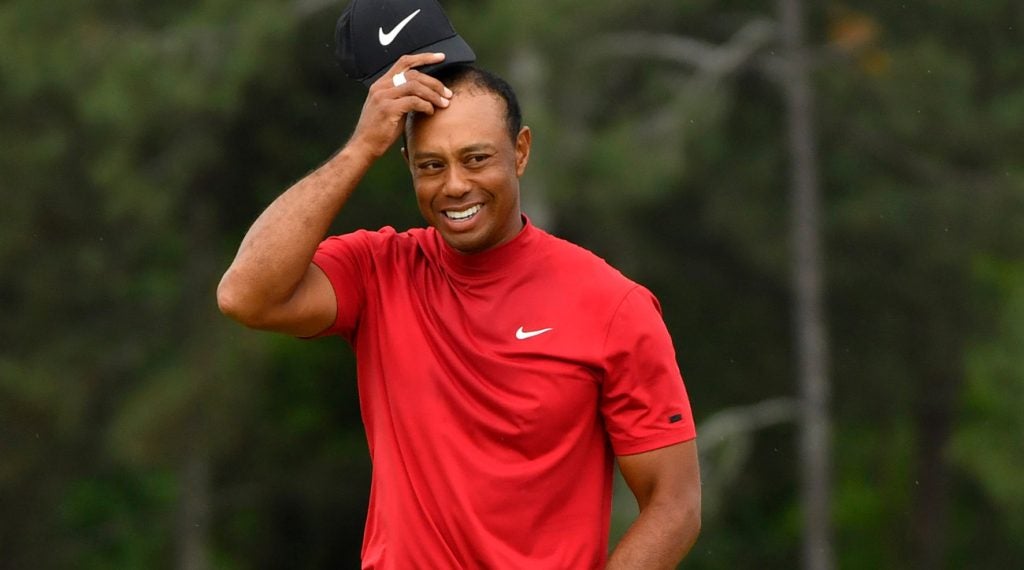
Tiger has always done the big gesture well. Witness the good works of his foundation. But we really get measured, and revealed, by the smallest of them. Along those lines, and with Tiger in mind, I’ve had a series of conversations this year with Aaron Baddeley, the Australian golfer who led the 2007 U.S. Open at Oakmont through three rounds. Woods was in solo second, two shots behind him. They played in Sunday’s last twosome. Woods was built like the Michelin Man then, and he stood on that first tee like the gladiator he was, in that red T-shirt that could barely contain him. Baddeley, 26 then, wearing plaid pants and a brown shirt, looked like he had walked in from an AJGA awards luncheon. Baddeley, not shockingly, went for a number (80). For the next decade-plus, their relationship was little more than passing nods.
Then Woods returned to professional golf, in January 2018, about seven months after his risky, almost desperate fusion back surgery. And when he came back, Aaron Baddeley could tell that Woods was somehow different. He saw Woods at Torrey Pines and asked him if they could talk sometime about his surgery, because Baddeley’s brother-in-law, a retired roofer with unrelenting back pain, was considering the same surgery and was nervous about it. “Yeah, sure — happy to,” Woods said. In March, at the Players, on a putting green, Woods spoke to Baddeley for 20 minutes, in no rush to go anywhere, about all the ins and outs of his pain, his surgery, his recovery. That might sound like nothing to you, but for 20 years Woods was like a shark on Tour. Wherever he was, he wanted to be someplace else. “It was a real conversation,” Baddeley told me. “Because of what he told me, my brother-in-law had the same surgery. He wouldn’t have done it without Tiger’s endorsement.” The surgery worked. Aaron Baddeley’s brother-in-law has a new lease on life. Consciously or not, Woods was doing something for others. The power of the small gesture.
After his DUI arrest, Memorial Day weekend, 2017, Woods entered a rehab program, not for the first time, but things don’t always stick the first time. We don’t know what happened there, nor should we, unless Woods wants to share it. All we really know is what we see, with those TV cameras pointed at him, and what we hear, with those microphones below his chin. And how he looks and sounds is … happy. Not always, because that’s not possible. That’s not even a realistic goal. But when he won at East Lake, he said, “It was just a grind out there, and I loved every bit of it.” When he didn’t win the British Open in July ’18, he shared with us what he told his kids: “Hopefully you’re proud of your pops for trying as hard as I did.” When he shot that Friday 68 at Augusta he said, “It felt very good to be out there, doing what I was doing.” When he missed the cut at the PGA Championship in May, he said, “I’m the Masters champion and 43 years old, and that’s a pretty good accomplishment.” Brooks Koepka had just beaten him by 13 shots over two rounds, and Tiger Woods seemed more than fine. Larry Clinton — “Sometimes I’m Happy” — must have known the feeling. On our better days, so do we all, meaning Tiger, too.
ADVERTISEMENT



